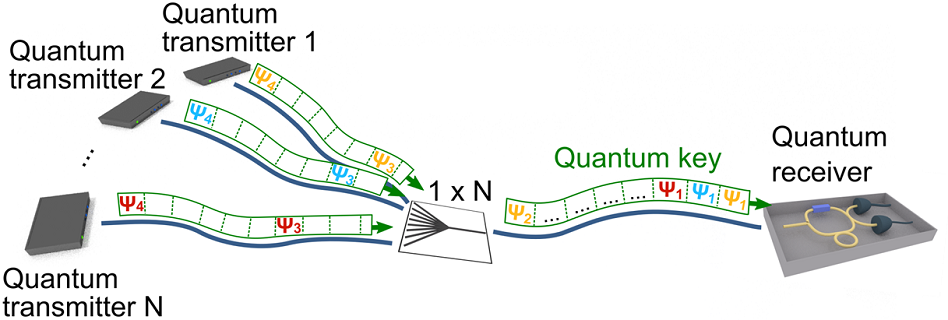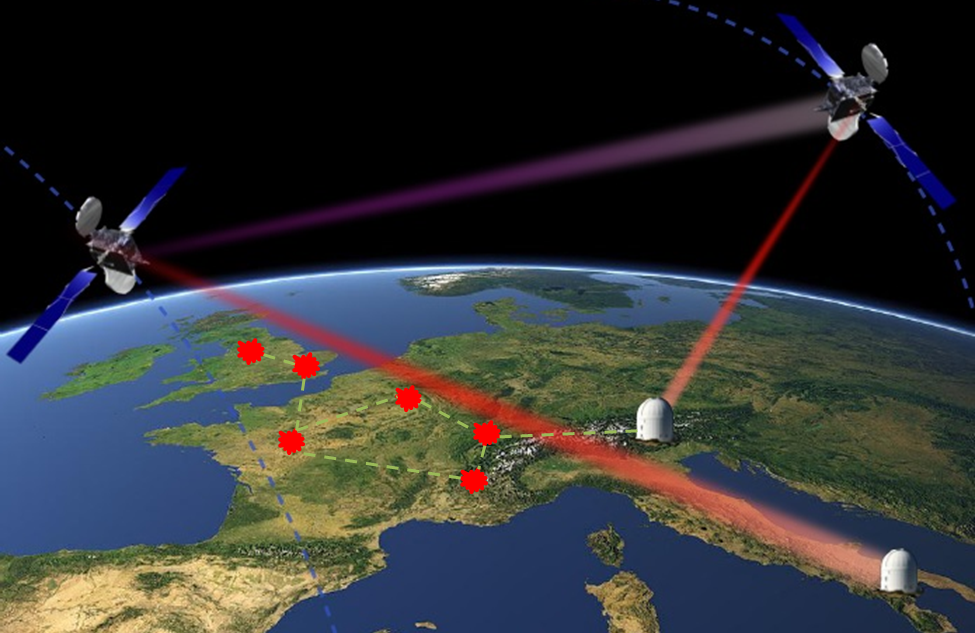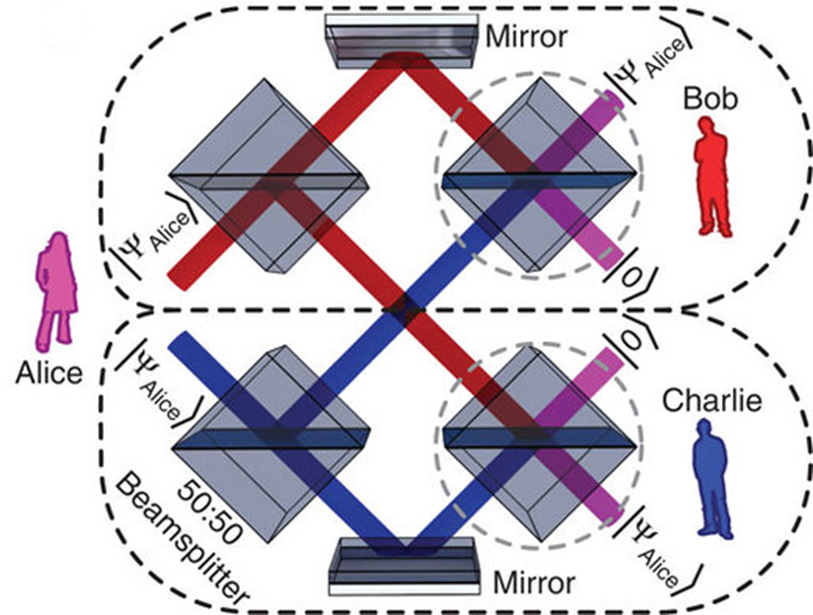QCALL combines a wealth of experimental and theoretical expertise at the participant organisations to address the key challenges of quantum communications (QC) technologies by developing: i) Working demonstrators and prototypes, with provable security, for the first generation of metropolitan-area quantum networks; ii) Theoretical and experimental progress towards practical realisations of long-distance quantum networks, in particular, addressing security, architecture, standards, and required resources; and iii) New quantum cryptography implementations, protocols and services that will enable its widespread exploitation. This will be achieved via three research work packages (WPs):
WP1 on Advanced Technologies for Metropolitan Quantum Networks
Led by Toshiba Research Europe Ltd
Experimental progress in the past few years has made us closer to bringing QKD to the home. With the advancement of fibre-to-the-home technology, it will not be long before most households are connected directly to an optical fibre network. Our partners have taken advantage of this and demonstrated QKD over the same architecture that optical access networks rely on, as well as in co-existence with classical data channels. To further enhance the widespread deployment of QKD, ESR1 will develop integrated optics required for the user (transmitter) end of a QKD link, while ESR3 aims at improving the key rate for CV QKD systems. ESR2 will take on the challenges of the continuous operation of measurement-device-independent QKD (MDI-QKD) systems, resilient to detector attacks, while ESR4 and ESR5 will identify the underlying security requirements for QKD systems in commercial and practical setups.
WP1 Projects
Project 1: Quantum key distribution on chip
Project 2: Continuous operation of high-speed measurement-device-independent QKD
Project 3: Phase-locked continuous-variable quantum communications and its applications
Project 4: Resilience of commercial discrete-variable QKD systems against quantum hacking
Project 5: Security analysis of practical decoy-state QKD systems
WP2 on Long-distance QC Systems & Networks
Led by the University of Padova
One of the ultimate goals of QC is to enable two network users, at any distance, to exchange secret keys. This, in its first generation, is expected to be achieved via a network of trusted nodes. It is important that the trust requirement in such core networks is minimised, and that can be achieved via satellite and repeater links, both addressed in WP2. First steps towards QKD between ground and low Earth orbit satellites have been taken, by exploiting a balloon or with passive satellites and ESR7 will take this further by considering alternative CV-QKD schemes for such links. We also consider different classes of quantum repeaters, those relying on heralded entanglement generation/purification and/or error correction techniques, and investigate the optimum resource allocation and inter-operability in large-scale 2-dimensional (2D) networks (ESR8). This will be complemented by working on advanced memory modules (ESR10, bridging WP2 to WP3) and novel memory-assisted structures that reduce the requirements on memory modules (ERS6, bridging WP2 to WP1). The latter will serve as a feasible intermediary step toward a full-scale repeater setup. Finally, the possible integration and comparison of repeater and satellite links will be investigated by ESR9.
WP2 Projects
Project 6: Novel structures for memory-assisted MDI-QKD
Project 7: Satellite quantum links for secure continental communications
Project 8: Optimal cost-effective distribution of quantum resources in future quantum networks
Project 9: Long-distance quantum key distribution over integrated satellite-repeater links
Project 10: Rare-earth-ion doped quantum memories for quantum repeaters
WP3 on Novel Protocols & Devices for Future QC Networks
Led by the University of Vigo
QC technologies are not limited to key distribution, but can also address quantum secure authentication as well as other cryptographic protocols. QCALL builds on the existing developments in the field and devises new protocols (ESR11-14), and supporting devices (ESR14-15) needed to implement such systems, including multipartite QC, secret sharing, quantum random number generators, and quantum digital signatures. WP3 will be bridged to WP1 via ESRs 1 and 14 and to WP2 via ESR10.
WP3 Projects
Project 11: Quantum communications protocols in optical networks
Project 12: Beyond-QKD continuous-variable quantum cryptographic protocols
Project 13: Multipartite quantum communication systems
Project 14: Novel approaches to simple and secure self-testing QKD systems
Project 15: Trusted randomness derived from quantum optical processes for QC applications


